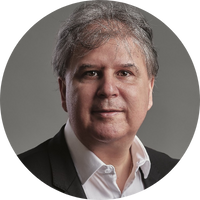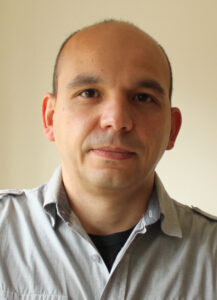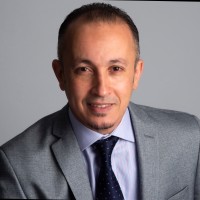Agenda
Cell and Gene Therapy World Congress 2024 Europe
"Driving Innovation, Addressing Significant Unmet Medical Needs, and Ultimately Improving Patient Outcomes"
3rd - 4th October 2024, Hilton London Kensington, LONDON, UK
INTRODUCTION
Cell and Gene therapies are forms of personalised, regenerative medicine. Described as the most innovative, promising and life-changing new categories of medicines whose full potential is only just beginning to emerge. They are cutting-edge and rapidly progressing fields of Biological Therapies. Also known as “Advanced Therapy Medicinal Products”, they involved the use of cells, tissues and genes to treat, prevent or potentially cure and eliminate complicated health conditions and difficult to treat diseases. These therapies promise life-changing treatments for a broad spectrum of complex diseases ranging from genetic conditions to cancers. Both approaches offer the potential to diminish the fundamental cause of genetic and acquired diseases by substituting the missing protein or cells causing the disease’s symptoms. Cell and gene therapies may offer longer lasting effects than traditional medicines. Convergence of advanced biotechnology, precision medicine, and expertise in manufacturing has facilitated the way for these therapies to become a reality, with remarkable successes observed in conditions such as cancer and genetic disorders.
Cell and Gene therapy has transformed the healthcare and biopharma industry by storm. Currently, after around 40 CGT launches across the EU and US, the market is worth around EUR 4.5 billion. A similar number are expected to be approved by 2028, when sales are projected to rise to EUR 19.2 billion. The development of biological therapies is rapidly expanding, however, commercialisation of this treatment poses different challenges to research and development, authorisation, manufacturing, accessibility, and ensuring safety throughout the lifecycle of the product.
The two-day Congress will provide an interactive, cutting edge, and comprehensive discussions in collaborative format led by key experts with intimate knowledge in the industry. Gain practical strategies and best practices on challenges, innovations, technologies, and concepts to help you gain access to the booming CGT market.
We are putting together an agenda that focuses on “driving innovation, addressing significant unmet medical needs, and ultimately improving patient outcomes”. We are gathering high calibre expert speakers to participate and share their knowledge and expertise through Keynote Presentations and Panel discussions, addressing all aspects of the industry.
We look forward to welcoming you to the CGT World Congress 2024!
• Clinical Research Organizations
• Research and Development
• Personalised Medicine
• Regenerative Medicine
• External R&D Innovation
• Innovative Medicine
• Rare and Ultra-Rare Diseases
• Cell and Gene Therapy
• Translational Science
• Molecular Geneticist
• Program Management
• Patient and Patient Groups
• Public Affairs
• Medical Affairs
• Regulatory Affairs
• Market Access
• Pricing and Reimbursement
• Health Economics Outcomes Research
• Commercial Development
• Investments and Funding
• Product Specialist
• Global Strategic Services
• Business Planning and Operations
• Pharmacies
• Academia
- Gain the latest insights to successfully navigate the complex access landscape of CGT
- Explore ways on how to strategically steer the state-of-the-art technologies in cell and gene therapies
- Understand approaches in advancing research and drug development
- Strategies in making HTAs more CGT focused
- Tackling barriers in regulatory compliance: discussions to streamline the process
- Know how to engage early with regulators and payers to enable swift roll-out of new therapies for the benefit of the patients
- Learn the production process which is crucial for new players entering the field
- Robust processes essential for ensuring performance, which helps prevent batch failures and associated costs
- Scalable technologies to manufacturing and to meet increased patient demand
- Have a meaningful conversation on how to improve access efficiently to innovative treatment to reach patient in a shorter period of time
- Find out if CGTs offer long-term value for money to manufacturer, regulators and payers
- Addressing the challenges associated with pricing and market access
- Network and collaborate with key stakeholders, regulators, academia, HTAs and payers
- Day 1 - 3rd October 2024
- Day 2 - 4th October 2024
2nd CELL & GENE THERAPY WORLD CONGRESS 2024 EUROPE
"Driving Innovation, Addressing Significant Unmet Medical Needs, and Ultimately Improving Patient Outcomes"
Day 1 - Thursday 3rd October 2024
COMMERCIALISATION & REGULATORY LANDSCAPE
- Latest trends and valuable insights to drive innovation and remain competitive
- Cutting-edge technologies revolutionizing treatment paradigms
- Aligning with international regulatory standards in order to support the broadest possible patient access.
- Ensuring affordability and accessibility of these therapies
- Key drivers for attracting investment
Panellist:
 Jeff Liter, CEO, OX2 Therapeutics
Jeff Liter, CEO, OX2 Therapeutics
- Introduction
- Demonstrating the UK’s continuous strength in the cell and gene therapy sector.
Challenges facing companies in this space
Collaborative work and initiatives to guarantee continued growth of the sector
Lessons learned and strategies to unlock the full potential of this developing field
- There are a number of changes and policy initiatives currently being developed which will start going into effect in 2025 and have a significant impact on the future of ATMPs in the EU.
- At the EU level, we have the EU HTA Regulation, discussions on the General Pharmaceutical Legislation, the Biotechnology Strategy, and a renewed focus on the competitiveness agenda.
- At national level, different Countries are reviewing their P&R and early access programmes.
- For developers, it is important to take a step back and look at the landscape holistically when considering pipelines and forecast the direction of travel in the EU for the next 5 years, and beyond.
 Dr. Alexander Natz, Secretary General, EUCOPE
Dr. Alexander Natz, Secretary General, EUCOPE
- Understanding the key logistics requirements in operationalizing Cell and gene therapy trials
- Comprehensive strategies to logistics management
- Addressing a whole range of intricacies across all types of CAGT assets
- Significance of stakeholder partnerships to optimize supply chain and enhance patient experience
- Ways to navigate and succeed in this promising yet competitive sector
Strategic portfolio assessments and management critical to success
Importance of robust clinical pipeline to attract interest from investors
Considering the complexity of the manufacturing process, supply chain requirements of each, along
with the required regulatory pathway to market.
- Improving clinical trials, strengthening regulatory authorities
- Foster use of health data for innovation
- Promoting innovative research projects
- Reimbursement for gene therapies and ATMPs
DEVELOPMENT & MANUFACTURING
- Last clinical results in NSCLC cancer patients in association with Pembrolizumab
 Eric HALIOUA, President & Chief Executive Officer, PDC*line Pharma
Eric HALIOUA, President & Chief Executive Officer, PDC*line Pharma
- Muscular dystrophy as paradigm for orphan drug development
- Most promising gene therapies strategies for the treatment of Duchenne muscular dystrophy
- Future perspectives; orphan drugs in the pipeline
 Dr Alberto Malerba, Lecturer in Gene Therapy, Gene Medicine Laboratory for Rare Diseases, Royal Holloway, University of London
Dr Alberto Malerba, Lecturer in Gene Therapy, Gene Medicine Laboratory for Rare Diseases, Royal Holloway, University of London
- Current landscape of CAR-T cells manufacturing
- Challenges limiting production capacity
- Latest technical developments in GMP production platform design
- Challenges associated with translation of new scientific developments into clinical products for patients
 Dr Theres Oakes, Head of Product Characterisation, Achilles Therapeutics
Dr Theres Oakes, Head of Product Characterisation, Achilles Therapeutics
- Utilising NHSBT’s supply chain and infrastructure to deliver ATMPs into NHS
- Manufacturing of red blood cells in vitro for RESTORE clinical trial
- Manufacture of gene therapy products at NHSBT’s Clinical Biotechnology Centre
 Dr Lilian Hook, Director Cell, Apheresis & Gene Therapies, NHS Blood and Transplant
Dr Lilian Hook, Director Cell, Apheresis & Gene Therapies, NHS Blood and Transplant
- To Follow
 Adam Glen, Co-founder, Unicorn Bio
Adam Glen, Co-founder, Unicorn Bio
- State of continuous process implementation and some ongoing challenges.
- Technological advancements that helps drive batch productivity and reduce the costs for patients
- Improving the design and efficiency of facilities to focus on quality, getting into manufacturing quicker
- Lowering the overall cost of goods and the amount of raw materials used
- Lessons learned and best practices
Moderator: Jeff Liter, CEO, OX2 Therapeutics
Jeff Liter, CEO, OX2 Therapeutics
Panellist: Alex Blyth, Founder & CEO, Lift Biosciences
Alex Blyth, Founder & CEO, Lift Biosciences
2nd CELL & GENE THERAPY WORLD CONGRESS 2024 EUROPE
"Driving Innovation, Addressing Significant Unmet Medical Needs, and Ultimately Improving Patient Outcomes"
Day 2 - Friday 4th October 2024
COLLABORATION AND PATIENT ACCESS
- The importance of stakeholder engagement: perspectives across different functions
- Creating a CGT platform: stakeholder engagement as a tool to support not only the development/commercialization of specific assets, but to build a sustainable platform
- How national level activities can impact on patient access to ATMPs
- Further national level collaboration between academic, clinical and industrial players is necessary to overcome the existing hindrances and boost further development of ATMPs in Europe.
Panellist: Dr. Alexander Natz, Secretary General, EUCOPE
Dr. Alexander Natz, Secretary General, EUCOPE
- To Follow
 Marco Traub, CEO, The Trans European Stem Cell Therapy Society
Marco Traub, CEO, The Trans European Stem Cell Therapy Society
- The significance of rationalizing clinical trials to reduce logistical and financial burdens for participants
- Leveraging technology to enhance access to treatment and specialist care
- Data-driven strategies to make informed decisions
- Patient-centred approach for better experience and outcomes
- Focusing on ensuring the equitable access to biologics and specifically RNA based drug products by everyone, everywhere.
 Prof Harris Makatsoris, Professor of Manufacturing Systems, Department of Engineering, King’s College London
Prof Harris Makatsoris, Professor of Manufacturing Systems, Department of Engineering, King’s College London
- Unique public-private partnership that has increased the access to new treatment options for patients
- Promote further innovation in clinical research using the strengths of the partnership
- Align potentially conflicting organizational cultures to maximize efficiencies and share project leadership
- Utilize a precision medicine master protocol to bring cutting-edge advances
- Allow for broader patient access and clinical trials that are more inclusive than standard industry-run trials
- Significant milestones in the development of gene therapy medicinal products that have facilitated the treatment of a significant number of rare diseases
- Bottlenecks and potential solutions that can improve access to gene therapy for rare diseases.
- Stakeholders engagement to bring about changes to improve access to gene therapy
MARKET ACCESS AND PRICING
- Circumventing operational complexities and regulatory barriers
- Consider near- and longer-term implications and opportunities to influence the design of the model
- Ability of the model to reduce costs and improve access
- Monitoring the development to better understand successful contracting arrangements
- Assess how potential therapeutic area expansion may impact pricing, reimbursement, and access for other gene therapy products.
- Past (learnings…)
- Benefit Structures / Cost / Contracting (e.g., Outcomes Based)
- Evidence & its Evaluation
- Special Considerations (e.g.,
– Dealing with surrogate endpoints
– Modifications & Flexibilities for Evaluation of Rare Diseases)
- Introduction of GCT Market Potential and Trends in Japan (commercial, regulatory and reimbursement)
- Opportunities in Japanese GCT market (political considerations and incentives)
- Challenges and Recommendations
 Mohamed Oubihi, Founder and CEO, YAKUMED LIMITED
Mohamed Oubihi, Founder and CEO, YAKUMED LIMITED
- Current landscape
- Existing innovative contracting with gene therapies
- How to overcome key challenges to innovative payment models.
- Leveraging real-world evidence to define outcome measures
- Implications to gene therapy manufacturers
- Breakthroughs and innovations in research and development
- Implementing next-generation technologies
- Novel pricing and market access strategies pharma will employ to increase patient access
- Various CGTs in the pipeline
- What will the next decade hold for these life-changing therapies?
